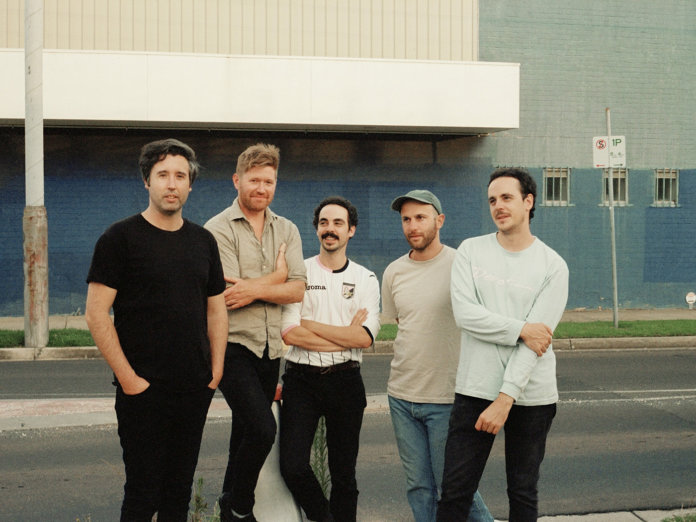Starting as they mean to go on, presenting decisive moments in a deceptively casual way, we join the second Rolling Blackouts Coastal Fever album on January 2. The Christmas celebrations are over, but the new year has yet to get going. There’s optimism about the future, though tempered with thoughts about what might be left behind. It’s nostalgic but hopeful, a unique time, one foot in the old, the other in the new, which they articulate precisely as “the time fold in between/The two years”.
It shouldn’t stretch the imagination too far to suggest that the start of the year might be analogous to where Rolling Blackouts find themselves as they release their second album – reassured by the successes of their debut album, possibly uncertain about what’s ahead. The achievement of Sideways To New Italy, however, is to maintain their customary tempo while deepening the experience, giving their melodic indie rock a subtle sophistication and confidence.
Anyone who saw RBCF on their 2019 tour will probably have noted that they don’t paint themselves into an indie-rock corner. While we may have been drawn in by one element – say Fran Keaney’s disarming, impressionistic songs – we were then pulled in a different direction by the unshowy virtuosity of the band’s twin lead guitarists Joe White and Tom Russo. You went expecting Grant McLennan; you were delighted to also get Tom Verlaine.
Here, that interesting transition space between musical worlds is developed. As with, say, Real Estate, who find a way to find the mesmerising element in jangling indie, RBCF find room to make unshowy excursions into motorik, or post-punk (“Beautiful Steven”), or surging Smithsy folk (“Cars In Space”). A sense of progression being one of their best qualities, Sideways… pushes things forward by having these instrumentalists deliver their first classic songs.
Joe White’s “She’s There” is about a love affair that has suddenly cooled in temperature, leaving the narrator first besotted, then haunted; the genius of the piece being to turn his mounting unease into a singalong. As they pull the song’s tempo up short, we learn the reason why: “I open the letter,” White sings, adopting a worried tone, the penny dropping on his situation. “But the writing’s wrong.”
“Falling Thunder”, by Tom Russo, is for much of its four-minute lifespan a dreamy but purposeful indie-rock song. After it makes its return journey to the chorus via a jangling Byrdsian guitar solo, it then launches into an entirely different vocal melody altogether, as the song moves from sunset into night: “Red light is fading/Caught in the moonrise…” It’s a fantastic moment on a record not short of them. Opening a song up in its final minute – as the band do on “Cameo” later on – might be the album’s signature, signposting change, and also proving the band have so many melodies at their disposal they can spend on an outro section what some bands might have stretched to finance an entire song.
Elsewhere, the band’s deepening assurance marks them out as increasingly deft painters of scene, their three songwriters all setting up their worlds with laconic mention of place and time: sun in the eyes, summer rain, winter light. It’s all quietly dignifying to fleeting moments, harnessing the power in the ephemeral. “You’re freezing/In election season,” Fran Keaney notes of an encounter at a social event, in another of his fine contributions to the latter half of the record, “Sunglasses At The Wedding”. Vignettes a speciality, it’s all show not tell, as the band unlock the stories in the commonplace. His best song here, however, is “Cameo”, where he recounts a Wedding Present-style house party encounter with an old flame, and the wish to be more than “a cameo in your home video”.
A song of mounting drama, it keeps itself grounded with reference to the prosaic – the narrator is watching someone return from the toilet; he’s socially awkward to the point of his eyes sweating – before getting to the moment of decision. Can he make this moment count? Is this the first day of the rest of their lives? At this moment, the music takes off.
It’s romantic, it’s exhilarating, and seems to be the Rolling Blackouts’ talent in a nutshell, to dignify momentary, young-life experience with the power it deserves, mirroring their own rapid journey from good to great. It finds a meaning in the rush of information and the loaded potential – the beauty of the ride.



